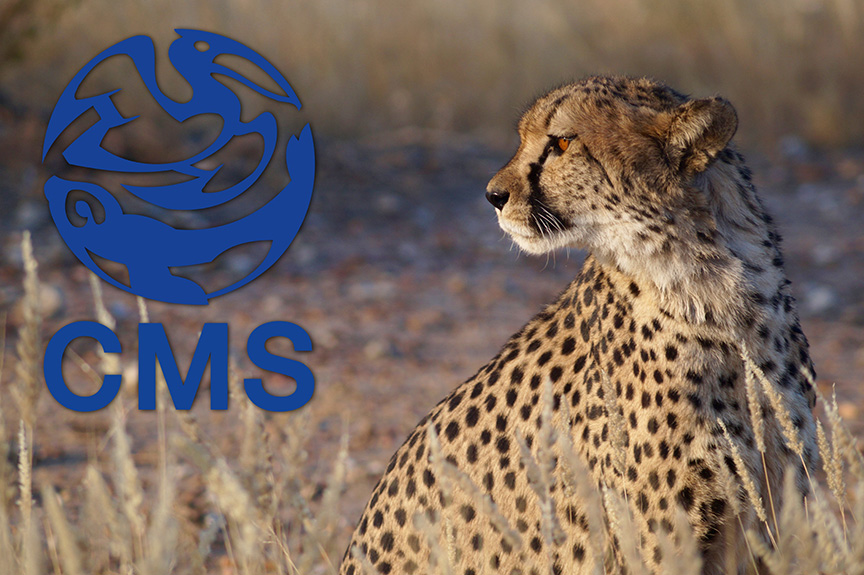
By Joe Goergen
You’ve heard of CITES, but what is CMS and why is it important to SCIF’s mission? CMS stands for the Convention on the Conservation of Migratory Species of Wild Animals, otherwise known as the Bonn Convention. SCIF staff recently participated virtually in the 5th Meeting of the Sessional Committee of the Scientific Council (ScC-SC5) over the last couple of weeks of June and July 2021.
As the name implies, CMS focuses on supporting conservation work of migratory species and is perhaps most associated with sea birds, sharks, whales and other marine life. CMS is another influential international policy body, but unlike CITES, CMS Appendix listings do not hold regulatory teeth for trade in wildlife.
However, the number of CMS-listed hunted species has been growing, even though many are transboundary and not truly migratory in nature. Previous CMS Conferences of the Parties—the 12th and 13th such meetings—for example listed giraffe, leopards, lions, and urial under their Treaty. There are also currently joint programs of work between the CMS and CITES Secretariats on central Asian mammals and African carnivores.
Many issues addressed by the CMS Scientific Council are cross cutting with the more important CITES agenda. SCIF therefore joined the Terrestrial Species Working Group that covered the Guidelines for the Conservation of Lions in Africa and Roadmap for the Conservation of Leopards in Africa documents, along with issues related to African elephants, cheetah, and other species of interest.
As CMS seemingly has much less range state input and is dominated by anti-use NGOs, SCIF hopes to provide a sustainable use voice in future discussions.
Joe Goergen is SCIF’s Conservation Manager and lead for international policy issues including CITES and CMS.
